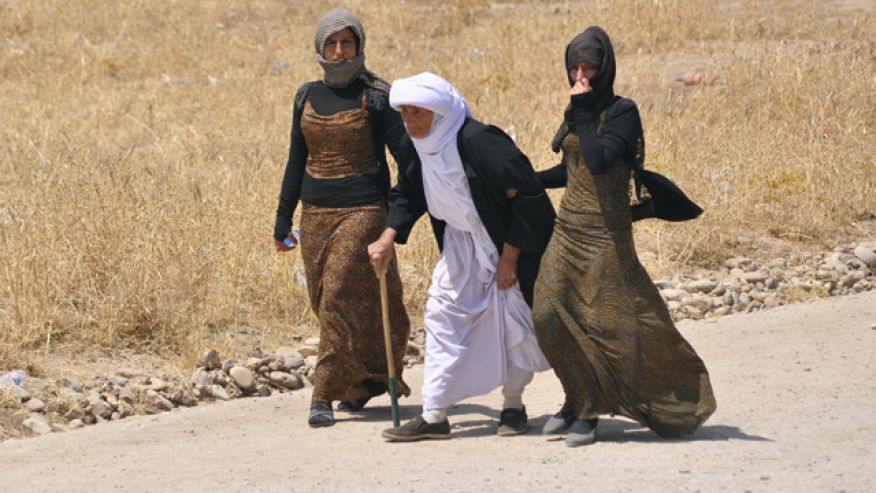
The Islamic State in Iraq and Syria (ISIS) continues its reign of terror, abducting and selling as sex slaves at least 500 Christian women as the Sunni extremist group overran Qaraqosh last week, the nation's largest Christian city where believers had sought refuge after fleeing Mosul.
"Elements of ISIS kidnapped women from the Yezidis and Christian as Sabaya (war slaves), and subjected them to be sold," said a spokesman for the Red Crescent, Mohammad Khuzai, in a statement. According to reports, the most beautiful women were given to ISIS princes.
Recently, ISIS overran Mosul, Iraq's largest Christian city, and gave Christians an ultimatum to either recant their faith, pay a fine, or "die by sword." In response, many believers fled to Qaraqosh is an ancient Assyrian town of 50,000 people, about 20 miles southeast of Mosul, according to CNN. But, as ISIS once again invades, Christians are once again running for their lives.
"France is highly concerned about the latest progress of ISIS in the North of Iraq and by the taking of Qaraqosh, the largest Christian city of Iraq, and the horrible acts of violence that are committed," French Foreign Minister Laurent Fabius said in a statement reported by CNN. Several nearby Christian towns were also attacked by ISIS militants.
Experts say Iraq's Prime Minister Nouri al-Maliki, is partially responsible for the mounting chaos in the country and have called for his resignation. However, Al-Maliki, who is campaigning for a third term, announced Sunday that he would file legal complaint against the new president, Fouad Massoum, for not appointing a prime minister from the country's largest parliamentary faction by Sunday's deadline as outlined by Iraq's constitution.
"This attitude represents a coup on the constitution and the political process in a country that is governed by a democratic and federal system," said al-Maliki.
"The deliberate violation of the constitution by the president will have grave consequences on the unity, the sovereignty, and the independence of Iraq and the entry of the political process into a dark tunnel," he added.
United Nations Secretary-General Ban Ki Moon, however, called for new government in Iraq-one that would effectively defeat ISIS and restore the country's stability.
"The Secretary-General remains deeply concerned about the evolving humanitarian and security situation in Iraq. The United Nations and the international community are also closely watching political developments in the country," noted a statement from Ban Ki-Moon's spokesman.
"The Secretary-General calls upon all Iraqi political parties to abide by the constitutional timeline that governs the nomination of the Prime Minister. He also calls for reason and wisdom to prevail and urges all leaders in Iraq to form a broad-based government that is acceptable to all components of Iraqi society. Such a government should be able to mobilize the nation to confront the threat from the Islamic State (IS) in a way that will bring security and stability to the whole country."














